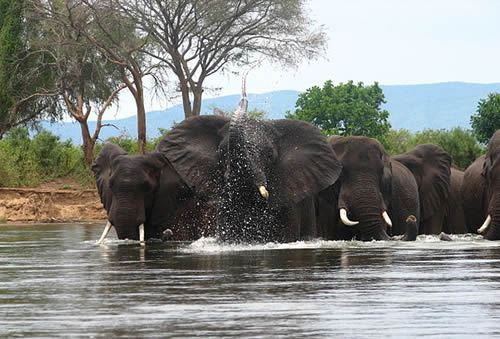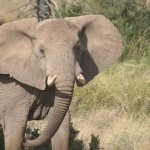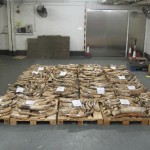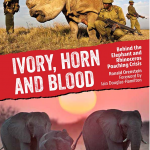Just over three tons of ivory were discovered missing from the Zambia Wildlife Authority (ZAWA) strongroom, and two game scouts have been apprehended in what is believed to be an “inside job”.
The suspects were identified by the Zambia Daily Mail as William Phiri and Abel Kahali. Vehicles belonging to Phiri and Kahali were also seized.
ZAWA director general Edwin Matokwani believes the theft was a “well-coordinated inside job”.
According to Muvi TV, two journalists — Bruce Mwale from Muvi TV and Delphine Zulu from Times of Zambia — were detained by police for filming one of the suspects.
The journalists’ equipment was confiscated, and although a video camera was later returned, the footage had apparently been erased.
Jason Bell, Director for the Elephant Programme of the International Fund for Animal Welfare (IFAW), said that the massive ivory haul stolen from ZAWA had been confiscated less than a month earlier.
Ivory stockpiles are a tempting source of rich pickings for crooks.
Recent ivory thefts
Last month in Botswana, 26 elephant tusks were stolen from a Department of Wildlife warehouse in Kasane. Botswana’s Weekend Post reported that 21 officers from the Ministry of Environment, Wildlife and Tourism were questioned in connection with the theft.
A suspect was later arrested in Zambia in possession of elephant tusks marked “Botswana Wildlife Kasane”.
In February, just over a ton of ivory was stolen in Mozambique, according to Dr. Tom Milliken from TRAFFIC.
If not managed properly, ivory stockpiles in the hands of government suddenly ‘get legs’ and move into illegal trade. Zambia lost 3 tonnes of ivory from the government’s strong room just last week and Mozambique lost 1.1 tonnes in February.
However, the Central African nation of Gabon publicly burned more than five tons of confiscated ivory (1,293 tusks and 17,730 trinkets) today, demonstrating its commitment to breaking the ivory trade chain.
“Gabon’s actions effectively keep the ivory out of the way of temptation,” said Dr. Milliken.
Image: Hanay via Wikimedia Commons





